|
When Perfectly Priscilla asked if they could send me a dress, I went straight for the one I could imagine meeting Stevie Nicks in: The Beachfront Maxi. I live next to the Pacific Ocean, and was already envisioning the life that Beachfront Maxi and I would be sharing together - margaritas at the Beach Chalet, literally hours of quiet afternoon time spent reading Martha Stewart Living, all while literally dozens of admirers stared on in awe of the goddess vibes this dress effortlessly exudes. I debuted the dress yesterday during a Sunday brunch date with Jacob at Scratch in Mountain View. Goat cheese with bacon and avocado omelets, chicken and waffles with maple syrup, a toasted muffin with lemon curd and my beloved coffee. That food was working hard, but this dress was working harder. Literally everyone in the restaurant wanted to be my boo. The Beachfront Maxi hit all my favs: Plunging neckline. Check. #BOOBS Flowing fairy babe feels. Check. I need to be able to go from brunch to crystal woo evening plans easily. Kimono/bell sleeve. Check. I have big arms, and need a super roomy sleeve. I got a ton of attention in this dress, which I paired with an oversized sunhat and amber necklace from H&M. 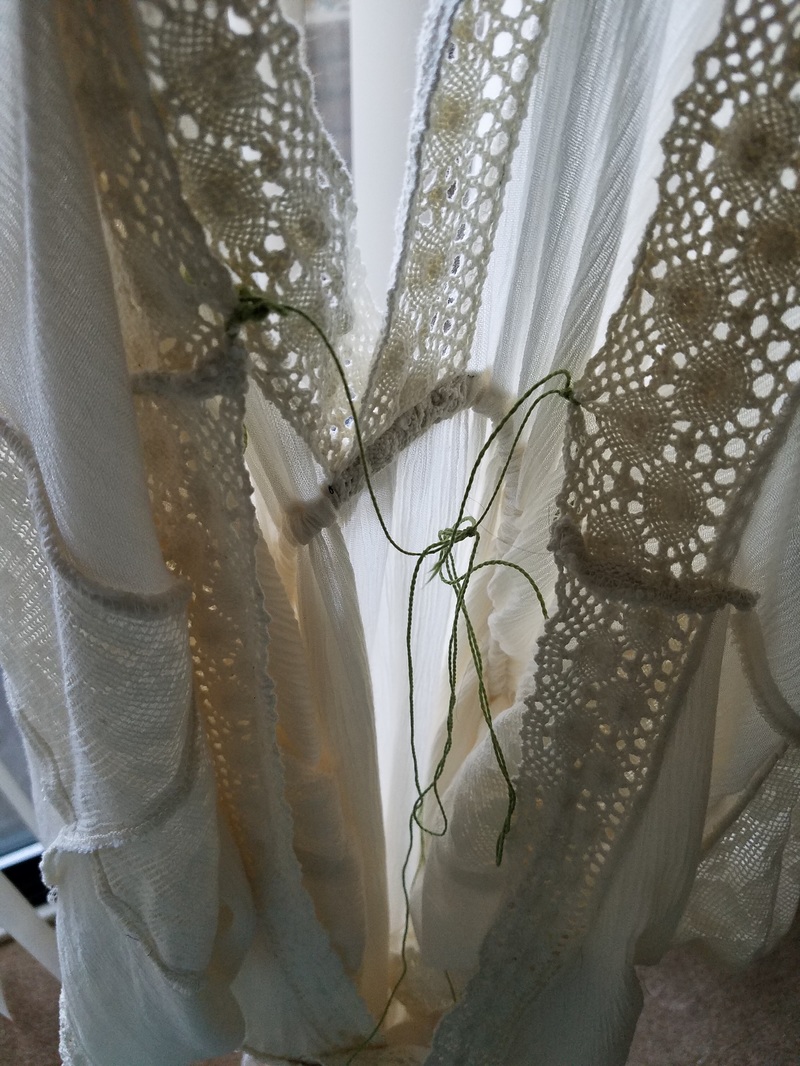 I hit 1.5 snags (one was an actual dress construction snag and the .5 was something that I personally consider a snag, but isn't a flaw with the dress per se): 1. I ended up adding some string to the back impromptu style before I left the house to keep dress from falling (see pic). This was the first time I had seen a dress with a neckline this deep that didn't have a behind-the-neck tying mechanism. I quickly found it falling off my shoulders. So I grabbed some string from my craft pile, and threaded the lace. It took about 3 minutes, but I cannot imagine having worn this dress without this modification. 0.5. The dress is quite see-through. I recommend pairing with a slip. I would wear this at the beach with bright bikini, though. And if you're an exhibitionist then, heyyy, no slip required.
Take a look at the other cute Perfectly Priscilla offerings by clicking here. www.PerfectlyPriscilla.com is an online boutique specializing in sizes 1X-3X. xoxo, Virgie One of my biggest fears as a fat woman is being photographed non-consensually by someone who seeks to violate my privacy and autonomy for sport.
It’s happened before. Once I was on the train, commuting downtown, when a group of teenagers got on. They sat right in front of me on the otherwise empty train, and started taking group selfies. When I looked up I saw one of them showing his friend the zoomed in image of my face, while he pointed and laughed. It turned out that photographing me was the real reason behind the selfies. It has since made me hyper-vigilant while on the train. Once I was a high school teacher. One of my male colleagues took me aside and told me that a student had texted everyone at the small school a zoomed in picture of my backside. He showed it to me on his phone. No head, no torso, just my butt. The student had taken the picture while I was writing an assignment on the white board. For the remainder of the year I didn’t feel comfortable writing on the board in my own classroom. Dani Mathers, 2015 Playmate of the Year, non-consensually took an image of a naked woman in the changing room at the gym and then posted it on snapchat. Some of the coverage on the event has sought to reduce this behavior to “bullying.” In fact, this is an instance of sexual assault. Referring to this behavior with the infantilizing language of “bullying” seeks to lessen the severity of the behavior and downplay its truly violatory nature. I recently wrote an article about the ways that violent behavior with life-long effects are quickly- and wrongfully - glossed over by using this kind of language. Even though this is one of the most invasive and degrading experiences an individual can undergo at the hands of another person, it’s important to realize that Mathers’ behavior has bigger implications for fat women – creating a sense that nowhere is safe to just exist. Fat women already opt out of public spaces like malls, beaches, restaurants and yes gyms because we feel unsafe. This is not a product of paranoia. It is a product of the behavior we have observed again and again. We rightly fear being made fun of at any time. We rightly fear being made to feel unwelcome. We rightly fear being photographed without our consent. Mathers’ decision to dehumanize, publicly humiliate and assault this unsuspecting woman shows the need not only for personal accountability but also for a cultural shift. We must stop asking people who are experiencing fatphobia to change their bodies. We culturally must recognize that fat shaming and fatphobia are expressions of bigotry, and that bigotry is a social problem not an individual one. Whether the culture wants to admit it or not, Dani Mathers’ behavior didn’t happen in a vacuum. She felt emboldened by the dominant discourse that positions fat women’s bodies as public property, available for unabashed criticism and undeserving of basic rights, like privacy. I'm so excited to announce that I'm working with the Berkeley Public Library to curate a 100% free Fat Positive Summer Festival this June and July! Fat Positive Summer Festival in Berkeley, CA - June 22 - July 3 Lose Hate Not Weight: A Critical Examination of Diet Culture Claremont Branch, 2940 Benvenue Ave. Wednesday June 22nd 6:30pm-7:30pm In this 60 minute lecture Virgie Tovar – author, expert and lecturer – offers a primer on the history and sociopolitical realities of our cultural obsession with weight loss. The story of modern day “Diet Culture” didn’t begin with juicing or cleanses, but rather over 200 years ago with the inventor of the graham cracker. Fat Positive Shorts Tarea Hall Pittman South Branch, 1901 Russell St. Thursday June 30th 7:00pm-8:30pm A selection of short films designed to challenge our understanding of fatness:
Freedom from Fat Shame! A Reading + Discussion North Branch, 1170 The Alameda Saturday July 2nd 7:00pm-9:00pm Virgie Tovar has assembled a group of incisive writers and activists for an evening of body liberation with readings and personal stories. Let their words smash your feelings of fat-shame and help you foster acceptance in yourself and celebrate diversity your community! Featuring comic artist Casey Gilly, Co-Managing Editor for Everyday Feminism Jezebel Delilah X, poet Baruch Porras-Hernandez, burlesque performer Irene McCalphin, and Dr. Kjerstin Gruys, author of Mirror, Mirror off the Wall. Interview requests should be made to me via e-mail at [email protected]. Further questions about the events can be directed to Jack Baur [email protected] Thanks to our media sponsors Ravishly, Halmoni Vintage, and Wear Your Voice Magazine. Graphic design by Jen Hickman Special thanks to the Berkeley Public Library and Jack Baur for making this festival possible! For more information go to www.BerkeleyPublicLibrary.org UPDATE: WE HAVE OFFICIALLY HIT CAPACITY! THE RESPONSE WAS AMAZING! WE ARE SO EXCITED TO MAIL THESE CARE PACKAGES OUT ♡
Last night, Natasha, the owner of Oakland-based store Halmoni Vintage, and I sat in her shop for hours playing with her dog Peanut, talking about ways to celebrate Babecamp's 1-year anniversary (!!!!), and scheming about bringing some cheer to plus size babes who need it this Christmas. And here's what we came up with: take the huge piles of clothing from last weekend's Fattyland event, pick out some stuff we really loved and send it to plus size babes who need a gift. So here's how it works: The Who We're working on the honor system, but we envisioned sending these gifts to plus size babes who could use some cheer because they're going through a tough moment financially or emotionally. Natasha is setting up a date for Bay area babes to pick up some goodies in Oakland. That means: we won't be mailing packages within the Bay Area. The What The plus size clothing we have is in sizes 1x-6x and can mostly be described as femme, with a vintage flair - though we have some basics, too. Each package will be lovingly put together with 1-3 items - could include things like accent scarves, tops, skirts and dresses. The How If that's you, please send your name, address, and your size to [email protected]. If you know you would absolutely not wear a certain color or item of clothing or if you're fashion-adventurous then definitely please include that in the email too! Other details: > We have a limited number of packages. First come first serve. > Shipping to U.S. addresses only. Once we run out of supplies I will update this blog. xo, Virgie & Natasha I'm sharing this public letter written collaboratively by Nalgona Positivity Pride, Trans Folks Fighting Eating Disorders and Adios Barbie galvanized by the intended location of the 2016 International Association of Eating Disorder Professionals symposium. I added my name to the letter, and encourage people with whom this resonates to share and add their own name.
Nalgona Positivity Pride, T-FFED: Trans Folx Fighting Eating Disorders, Adios Barbie and our comrades find the International Association of Eating Disorder Professionals’ (iaedp) location choice of The Amelia Island Plantation (Labor Camp) Resort for its 2016 Symposium offensive, ignorant, and symbolic of the ways white supremacy is upheld and perpetuated by the eating disorder treatment field. After one of our group members brought these concerns directly to iaedp, a representative from iaedp’s leadership did not apologize, refused to consider making any changes and claimed they were offended by the conversation. We will not condone white fragility and willful ignorance. As iaedp is considered a leader in the professional ED field, we implore you to model solidarity with marginalized communities. The Amelia Island Plantation (Labor Camp) Resort is a site of historical violence and erasure, colonization, displacement, illegal enslavement and forced labor. This legacy of violence includes Spanish missionaries and European invaders whose colonization decimated the Native/Indigenous Timucua people in the 1500s; smugglers who captured black folks and smuggled them through Amelia Island to be sold into slavery; and the white-owned hotels that gentrified the island in the 1970s, extinguishing the area’s existence as a thriving black resort destination (even through the Jim Crow era during which black resort owners were not allowed on the segregated beaches). The legacy of white violence at Amelia Island mandates addressing, requires accountability and proscribes complicity. This shameful site choice is also indicative of the harmful lack of critical, intersectional thinking that occurs when PoC are not in leadership and decision-making positions. Moreover, this site choice sends the very clear message to ED professionals of color: “You are not welcome. Your histories and community traumas are neither important nor valid.” We find the lack of acknowledgment or discussion about this issue indicative of the ways in which people of color are erased, silenced, and under/unrepresented in the ED arena; moreover, there is a correlation between eating disorders and historical events, such as the atrocity of slavery. We believe that historical trauma, transgenerational trauma, post-traumatic slave syndrome and the current systems of oppression are factors that contribute to the development of eating disorders in communities of color. Iaedp’s all-white keynote speakers include Rachel Yehuda, an expert on epigenetic community and historical trauma. If iaedp cannot see the hypocrisy behind hosting her talk and failing to address similar traumas in black and Indigenous communities, it is surely inappropriate for the association to be a considered leader in the field of ED professional certification standards. Slavery and colonization in the US may be considered a historical phenomenon, but the legacy of oppression is ever-present. Systemic trauma is perpetuated daily through the lack of quality health care services for low-income PoC, the high rates of incarceration of black folks, the long history of police brutality against indigenous and black communities, the egregious numbers of black trans women/transfeminine people brutally murdered each year, etc. The systemic and intersectional discrimination and violence against these communities has greatly impacted the quality of life for generations of black and indigenous families. There is also no excuse for the choice of venue given the widespread awareness and support of #BlackLivesMatter, along with the increased availability of educational resources teaching white people how to be effective allies. We are dedicated to educating others on the link between EDs, colonialism and systemic oppression. The time is now for the eating disorder field to change its 30+ year legacy of treating and advocating mostly for white privileged people. Eating disorder providers and organizations must reevaluate their values and priorities and work towards serving the greatest need rather than the biggest wallets. We, Trans-Folx Fighting Eating Disorders, Nalgona Positivity Pride, Adios Barbie and our supporters, ask that iaedp: 1.) Change the location of the conference site or cancel the conference. 2.) Fund representatives from organizations that are on the front lines of anti-racist/anti-oppression work and the intersection with ED, like ours, to collaboratively design and implement a course in the Certification for Eating Disorders Professionals (CEDS) curriculum that solely addresses EDs in marginalized communities so clinicians and advocates are better educated on culturally competent/responsive care at the beginning of their careers. 3.) Support our #EDShift Campaign, which we will be building over the next few years. This is an opportunity for iaedp to truly acknowledge the problematic choice of conference venue and commit to change and growth in the field. This campaign seeks to enact permanent, sustainable changes in the field including:
To fully address this discriminatory site choice, iaedp must make a bold move to interrupt the conference proceedings and discuss a framework for accountability and next steps. Iaedp must not re-traumatize sufferers already sidelined by the mainstream white ED narrative and the white-centric, culturally ignorant medical industrial complex. We await your response and hope you will stand on the right side of history. Sincerely, Nalgona Positivity Pride (NPP), Trans Folx Fighting Eating Disorders (T-FFED), Adios Barbie, Virgie Tovar To our comrades: We ask that you please share this letter in solidarity; together our voices are stronger and we can send a powerful message to professionals that racism in the ED field will no longer go unchecked. The time to follow me on Instagram (@virgietovar) has come, girl.
I'm giving away a spot in my Babecamp Winter Edition - November 9 - December 5, 2015. Babecamp is a 4-week virtual class focused on facilitating your break up with diet culture and your ascension to MEGABABE status. Every morning you get a Daily Action Email. Once a week we do a Q&A teleconference that's recorded. It's real cute. Anyone in the world can participate. Past Babecampers have been from Germany, Mexico, Australia, UK and yes 'Merica. To enter: 1. Follow @virgietovar on Instagram 2. Regram the contest pic 3. Tag @virgietovar 4. Tag #BABECAMP Winner announced 10/1 More info available at www.virgietovar.com/babecamp.html Photo credit: Suma Jane Dark for Wear Your Voice Magazine #WearYourVoice I want to talk about how the fat belly has become a reviled cultural object, in part, because it’s become a metaphorical representation of the refusal to discipline “base” instincts and non-empirical ways of knowing - that is, knowledge and behavior derived from “the gut.”
I think the fear of fat bellies is connected to our cultural anxiety around trusting our “gut” - or instincts - because we have spent hundreds of years trying to suppress it culturally. More on that in a second. We obviously have actual guts (intestines and other viscera) inside our bodies, which you could easily find during a surgery or during a CT scan. When we colloquially refer to “trusting our gut,” however, we are talking about something we cannot measure or see. When we talk about the second kind of gut, we are talking about non-empirical knowledge or intuition. Somewhere along the way we as a culture began to locate that intuition within our gut - or belly. The fat belly, I think, becomes an outwardly visible "object" that represents an internal, invisible rebellion against a culture that values measurable outcomes and concrete ways of knowing. OMG! I bet you didn’t know your belly was doing all that. We live in a culture that expects us to suppress our “gut feelings” in favor of intellect and social mores. We also live in a culture that expects us to maintain a slender body - and a flat belly by extension. I see the anxiety around the size of a belly as connected to the anxiety around how much I allow “my gut” to determine what I choose to do - or not do - with my life. Following “my gut” often leads to me doing things that are frowned upon by respectable society. In fact, it was my intuitive sense that diet culture is unjust and violent that led me to stop dieting. My gut also led me to postponing marriage, becoming a feminist, leaving Christianity and all kinds of other things that girls aren’t supposed to do. If you know me you know that I’m ALWAYS talking about the universe, how my gut told me not to trust that one person that one time, ghosts, how I “had a feeling” that so and so was going to call me and they did, and all kinds of other stuff that places me firmly outside of the western narrative of progress or respectability. Girl, I’m Mexican. And Mexicans know that you shouldn’t trust no man who tells you to believe his books more than your own body. I’d like to talk about a time that I suppressed my gut in favor of "intellect." Ready? It’s 2010, and I’m in grad school. During the new student orientation, my gut hones in on someone who is the energetic equivalent of one enormous red flag made of tinier red flags that are made of tiny razors that carry tetanus. My gut immediately gives this girl the side-eye. As the orientation continues, however, I begin to throw the advice that my gut generously gave me to the wind. I’m a grown up grad student now, I thought! There was a lot of discussion from faculty about how important it is to be “collegial,” and presume that we are all working collaboratively. In short: that same old colonialist bullshit that lands people like me in Shitsville. My gut knew better, but now that I was in a fancy board room I decided to forsake her in the name of “success” and “self-improvement.” Well, girl. I won’t bore you with the gory details, but in short I made the wrong goddamn choice. Central to the building of an idea of western modernity was the notion that a superior species or race could be constructed through the denial and repression of our “primitive” instincts - for sex, food, love, fart jokes, etc. We can see the ripple effects of this violent history in modern day racism, sexism, classism and their love child - fatphobia. Dieting is all about the denial and repression of valuable instincts in the name of getting “exclusive” privileges meted out by the nation’s wealthy elite. This fear of actual bellies feels connected to this greater fear of our ability to access intuitive knowledge - or “gut” knowledge - and instincts. The impulse to force us to slim down is in many ways about the cultural terror of desire, the complexity of our own humanity, and what might happen if we actually (and metaphorically) just ate the damn cake. Ok, girl, time for a sandwich. xo Today I think I made the best mental-health-in-the-Internet-age decision since deciding to de-install the Facebook app from my phone.
I decided to permanently close the comments section on my blog. The decision was inspired by something that happened this morning. I realized I hadn't moderated my comments in a while, and I figured that I could tick something off the list for the day. So I got into the comment moderation section of my blog and saw dozens of comments on one post I had written on deciding to block this dude on Facebook because of a bad, unresolved feeling I had about our friendship a long time ago. Blocking people, last time I checked, is totally my (or anyone else's) prerogative. It is almost always harmless, and leads to the avoidance of unnecessary stress. And I'd guess that often the other person doesn't even notice that it's happened. Despite this relatively pacifist move, I managed to enrage about 3 dozen members of Reddit, where my blog had been re-posted, who invested in commenting through my comments interface (yes, they personally felt they had to come and e-lambast me when they could have just done it on Reddit). The consistent pathologizing tone of the comments was what disturbed me the most. More than hurling epithets (though, yes, girl epithets were hurled) or commenting on my looks, these comments sought to destabilize my notion of reality, to position me as moronic, ill-equipped to handle the "real world," and entitled. Well, ok, maybe I'll grant the entitled part, though I tend to identify as "pretentious-light." More than anything I felt that these commentators sought to "put me in my place," arguing that I didn't have the right to block someone or have feelings about them. In short: totes weeeird, girl. And totes draining! The good news: These people absolutely inspired me to take care of my mental health! They made me realize something important: I need to invest only in the people who invest in me. People who aren't invested in me have no place in my comment section, my inbox, my thoughts, or my life. I realized that even though often I get super lovely comments from very supportive people (thanks lovely, supportive people!) that my time moderating comments could be better spent writing, reading, painting my toenails, contemplating my fat bitch takeover apocalypse, or otherwise investing in people (and pursuits) who nourish me. I'd looove to encourage you to invest only in the people who nourish you, the pursuits that make you feel stoked, and to have a conversation about stuff in person rather than online. It's bye bye to comment moderation for this babe. xo, Virgie I've lived in San Francisco for almost 9 years, and until recently used the train primarily to get around. San Francisco is one of those towns that has a vast public transportation system - MUNI - covering nearly all its 49 square miles with at least one bus or light rail train, if not both. As lucky as I feel about having access to it, the train is also a space I've come to associate with fatphobic hostility. I began to keep track of the instances of fat shaming I experienced in my daily life, and almost all of them happened while I was waiting for the train or on the train.
I experienced explicit fatphobia on/around the train often enough that I would sometimes alter my schedule to avoid high volume times and times that coincided with the end of the school day, sometimes I would stand rather than sit so that other riders would feel like I was encroaching on "their" space less, and sometimes I would "rebel," and spread my stuff everywhere over multiple seats and put my sunglasses on - daring someone to say something to me. All of these tactics, in short, are exhausting for different reasons. People are often surprised to hear that most of the instances of fat bashing I've experienced have been at the hands of women, most of them white and thin. Being in or around shared public space really seems to bring out the bigotry in people. I imagine it has something to do with the anti-humanitarian, zero-sum mentality that capitalism teaches us - the more room you take up, the less room I have. I think it has to do with internalized sexism and women keeping other women down on behalf of patriarchy. I think it has to do with the "audacity" of a fat brown woman living in rapidly gentrifying San Francisco. All of this is exacerbated by the entitlement that permeates the culture of The City. So I came up with a theory: anywhere where my outer thigh has the potential of touching another person's outer thigh is likely not a safe place for me. In January of this year I got a car for the first time. Since getting a car I have avoided taking the train even in moments when it's more convenient to leave the car at home. I remember thinking/theorizing about 2 years ago: "if I could avoid taking the train I could reduce my experiences of fat bashing by almost 100%. And how fucked up is that?!" It made me think about privilege then. And it makes me think about privilege now that my theory has proven to be correct. It is an incredible privilege to have access to things that help shield us from bigotry - whether that's light skin, more disposable income, a flexible schedule, or a car. There are so many people who don't have a shield or who can't avoid taking the train between 7am-9am/4pm-7pm. There are lots of people who are scheduling their lives around other people's bigotry or who have to face it head on and deal with the stress of it. I'm thinking of you (us) and recognizing what you (we) have to survive. I hope we feel no shame for what we have to do to make it through today. For so long I saw myself as a failure. Even though there were so, so many signs that I was already rebelling against diet culture, I denied them. Each time I ate cake or decided to watch Dynasty instead of exercise, my inner badass was saying "girl, this sucks." The badass inside my head won a lot, but I couldn't see those choices not to comply as CHOICES, only as failures. After breaking up with diet culture I began to see that my body is this cute thing that comes with me to all the places I love and helps me do weird and amazing things, but my body is not the most important thing in this story. My choice is. I made a decision not so long ago that I was going to stop dieting and stop hating myself and stop weight cycling and to CHOOSE ME rather than some culture of adherence that seeks to reduce me to a reproductive hole who straightens my hair so I can get a job I hate, come home and blow a husband I loathe, and make dinner for children I didn't want to have. In choosing ME I decided that I would eat what I wanted (not never ending parades of dressing-less salad) and I was going to move for fun (not for weight loss) and I was going to live right now (rather than wait til later). And when I made that very feminist choice I said to myself "whatever my body looks like while I'm living the motherfucken dream, so be it." So when I see my fat body now I remind myself that I know how to starve myself, I know how to exercise for 2 hours a day, I know how to obsessively count each calorie and each gram of fat. I know that life. I've lived that life. And I don't choose that life anymore. My culture is very committed to seeing my fat body as a failure. According to this culture, my body is an artifact of my inability to perform at a standard that has been set for me. My fat body lives in a metaphorical negative space or vacuum - the automatic space that has been left behind, the leftover space inhabited by all those who couldn't "make the cut." Or so the culture tells me. The culture is very invested in constructing this island of misfits as a space that no one would ever choose. It is only a place to which people are relegated. My body is not seen as part of a choice I've made or something that is constituted by neither failure nor success. There are even those whose politics align largely with my own who are committed to pleading a case that my body is a failure that is "not my fault," and in so doing seek to assimilate bodies like mine into a greater western progressive agenda. I would probably agree that my fatness has something to do with my family being fat. I would probably agree that even taking the recommended measures for diet and exercise, I would likely still be considered fat by medical and even social standards (at least in San Francisco, where I live). But I'm not interested in exonerating myself. And perhaps more importantly, there is nothing that needs exonerating. I'm not interested in the culture "understanding my circumstance" as having come by no fault of my own. I am not interested in my body being constructed as one in a batch of failed prototypes. I am not interested in being seen as a success in a culture where success means complicity in a war against myself (not to mention a war against poor people and people of color and women). Even though I have made this choice, the culture is very committed to seeing and constructing me as a failure. Why? Because who would CHOOSE not to opt into the privileges I could be afforded for my obedience? Who would CHOOSE not to go along with the notion of health and progress set out for me by the state? Who would CHOOSE not to go along at any cost? Well, honestly, more people than you think. And hell you might already be doing it right now and not even know it! Jack Halberstam in The Queer Art of Failure speaks of this very phenomenon. All of those who are outside of what is considered normative MUST be seen and constructed as failures. Our choice to be outside of the violent - and frankly BORING - center of privilege must be erased. It cannot be seen culturally as a choice because this would too quickly unveil the critique that making such a non-compliant choice indicates. When we choose not to assimilate this is very powerful because we are in essence saying "your party sucks." And, girl, patriarchy really doesn't like to hear that. We are taught to see ourselves - all those outside of the boundaries of white/assimilated, wealthy slenderness - to be (metaphorically) standing with our noses pressed to the glass of this "glamorous" world to which we have no access. We believe that is who we are. That our identity and very selfhood exists only in relationship to these people and the aesthetics of their lives. I believe this to be far from the truth. At least it is far from my truth. It took me a VERY LONG TIME to leave diet culture. It also took me a very long time to realize that I am a beach dwelling bohemian writer/thinker/artist type. I was convinced that this was just a phase. I couldn't understand WHY I kept coming back to my artsy, intellectual, fashion adventurous, bitchy, irreverent friends who cursed and talked about shit and penises at dinner parties that would evolve into dance parties after shots of sparkling pinot noir from Grocery Outlet. I couldn't understand why I preferred only mini-vacations into the world of the Marin housewife, sipping chardonnay, putting a napkin on my lap, giggling quietly at sexist jokes and exposing only "tasteful amounts of cleavage." I always wanted to go back to the drinking dancing heathens, and I felt shame and confusion. Doesn't EVERY brown girl who was raised by American dream loving immigrants, given the opportunity, want to disappear into the manicured lawns of white suburbia? I couldn't even interpret the signs that were all pointing in the direction of my desire. I had bought the line that bohemians are only bohemians because they can't be anything else. It took me an embarassingly long time to realize that I didn't want to "graduate" to Marin. I wanted to be somewhere where I felt nourished and seen. White suburbia wasn't that place for me. The admission of failure - of the non-consensual nature of the aberrance - is a requisite part of the process that then allows the culture to forgive you and in so doing aggrandrize and confirm itself as a benevolent, progress oriented patriarch. But I, like, don't need your forgiveness patriarchy. And I don't want it. I'm stoked to have failed at being the culture's patronizing notion of a successful woman. I take a stand against oppression. I am a woman who believes in the feminist right to choose. I am an anti-racist brown person and a fat liberationist. And, no, I'm not sorry. This post would not be possible without the incredible work of writers and intellectuals like Jackie Wang, Jack Halberstam, Juana Maria Rodriguez & countless others living out their anti-assimilation every day.
|
Virgie Tovar
Virgie Tovar, MA is one of the nation's leading experts and lecturers on fat discrimination and body image. She is the founder of Babecamp (a 4 week online course focused on helping people break up with diet culture) and the editor of Hot & Heavy: Fierce Fat Girls on Life, Love and Fashion (Seal Press, 2012). She writes about the intersections of size, identity, sexuality and politics. See more updates on Facebook. Archives
April 2021
Categories
All
|
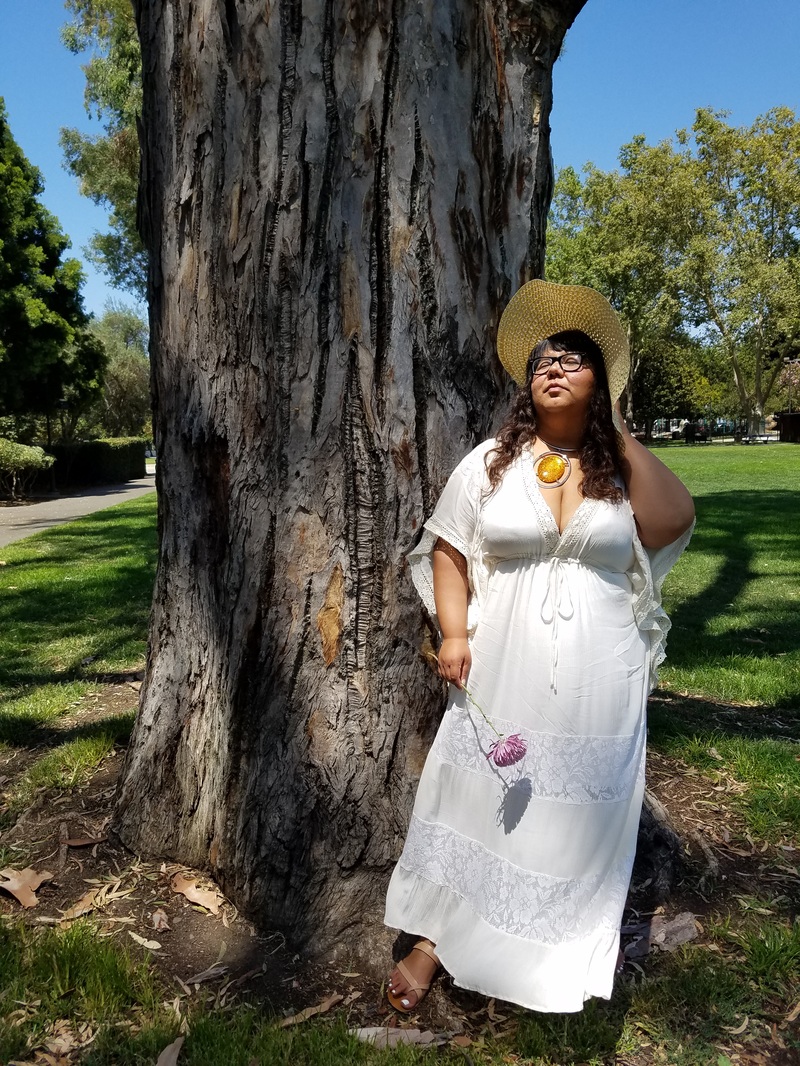
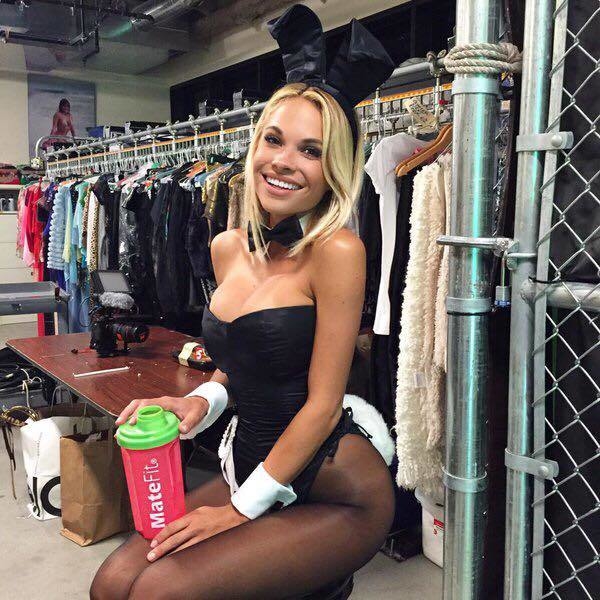
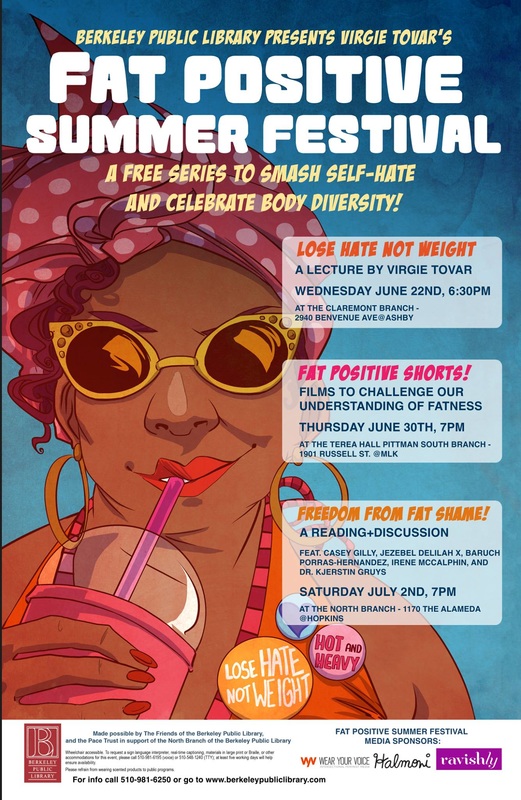
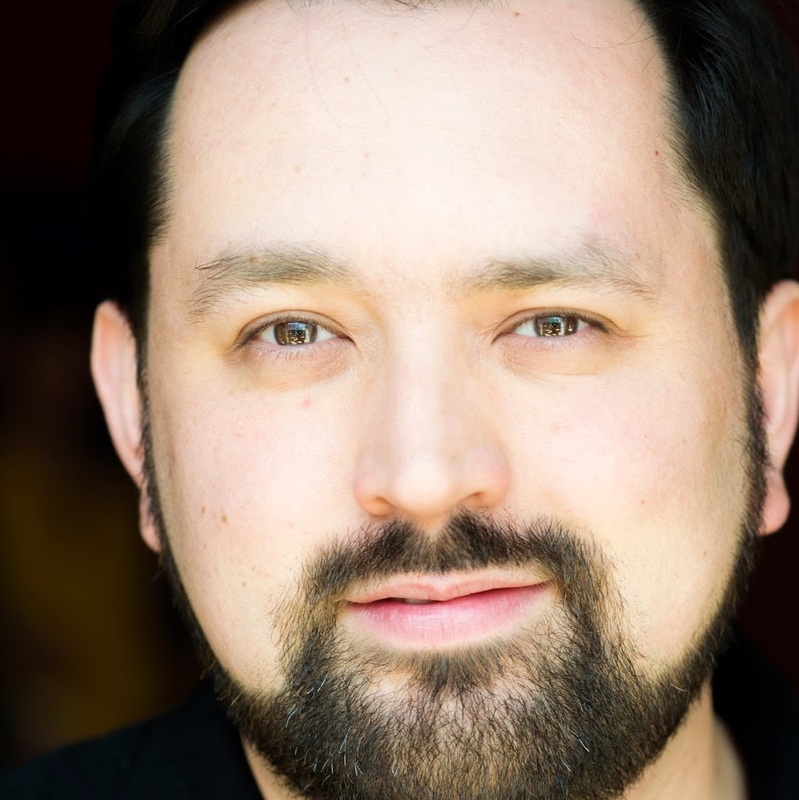
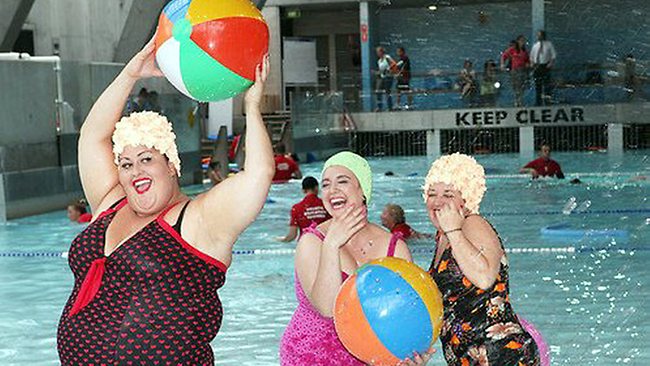
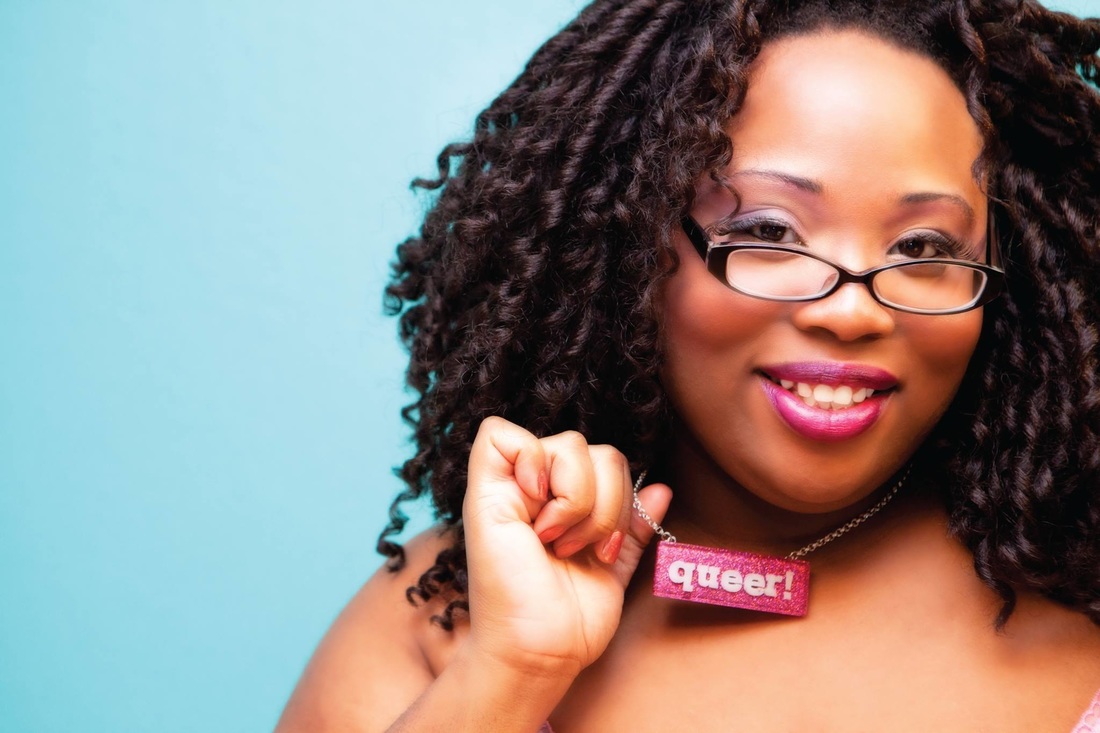
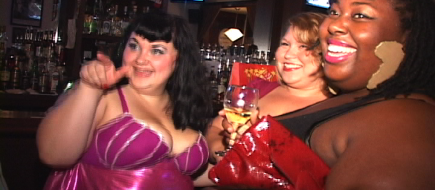
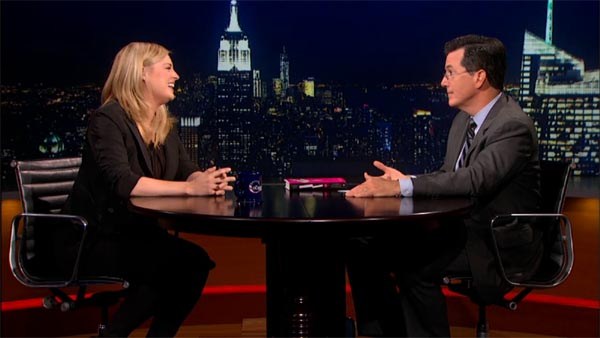
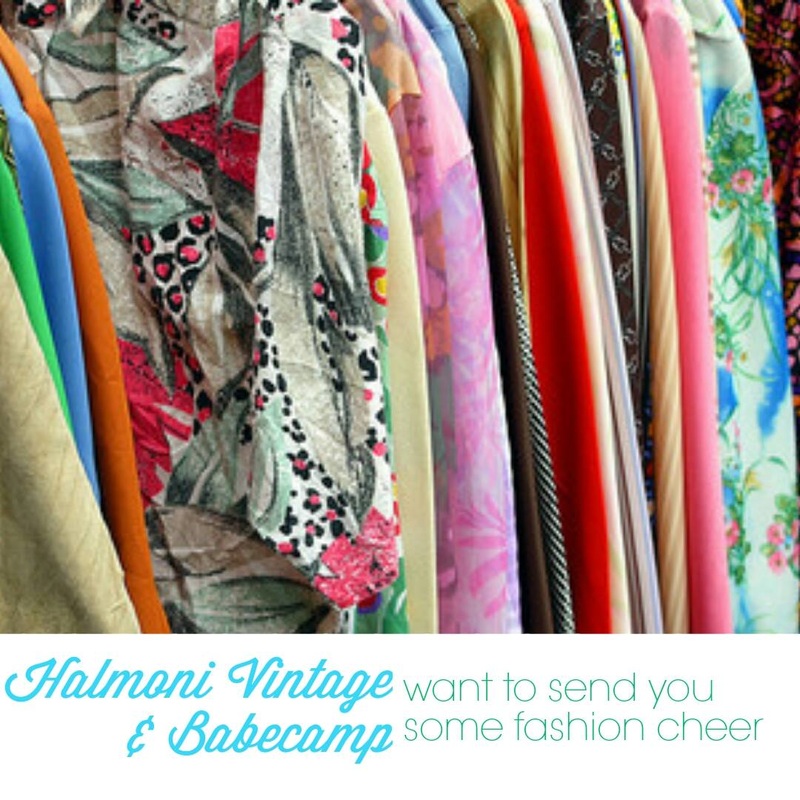

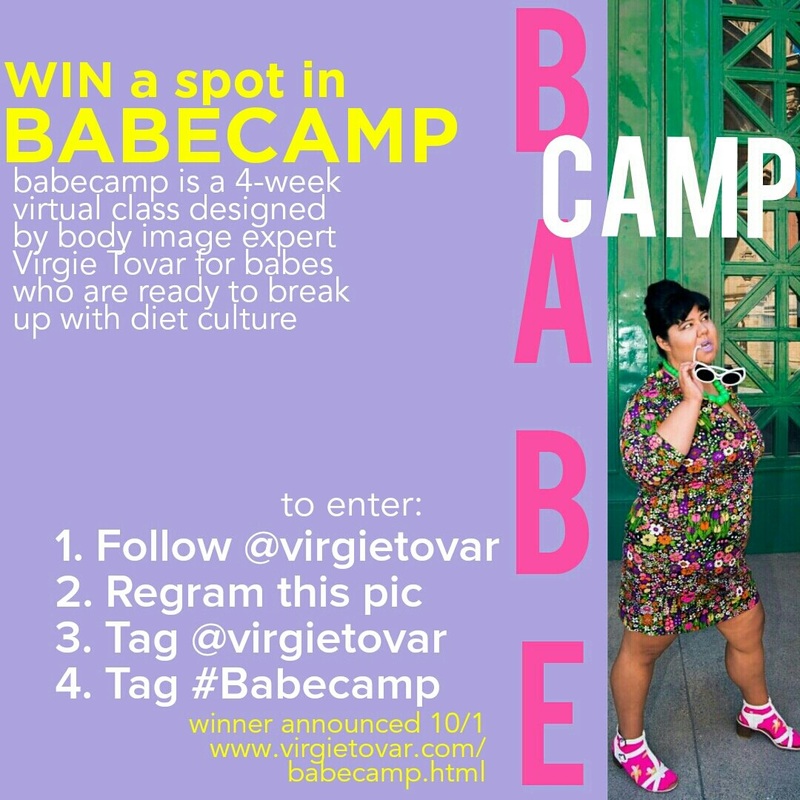
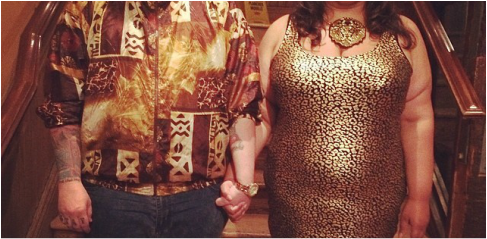
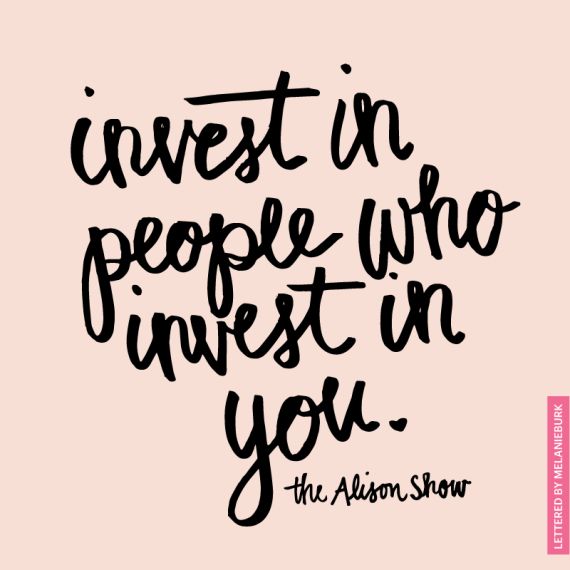
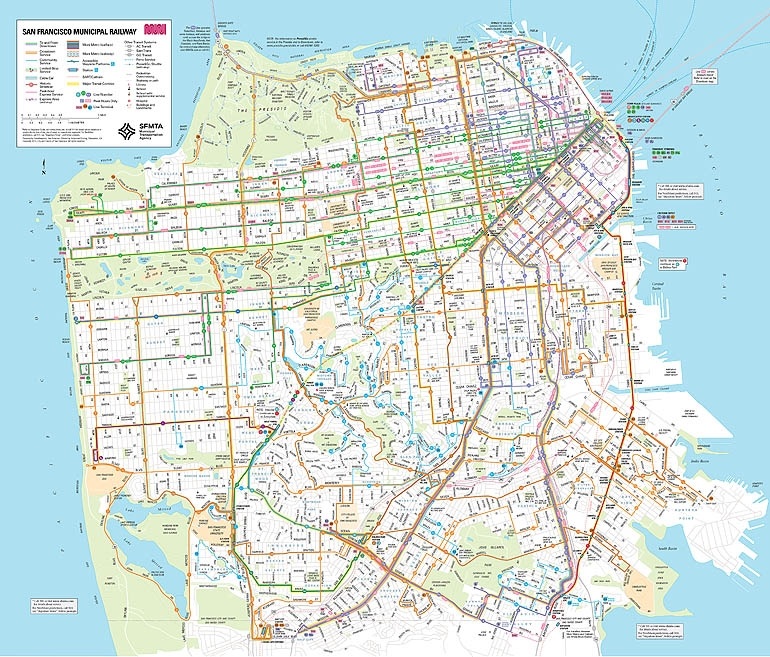
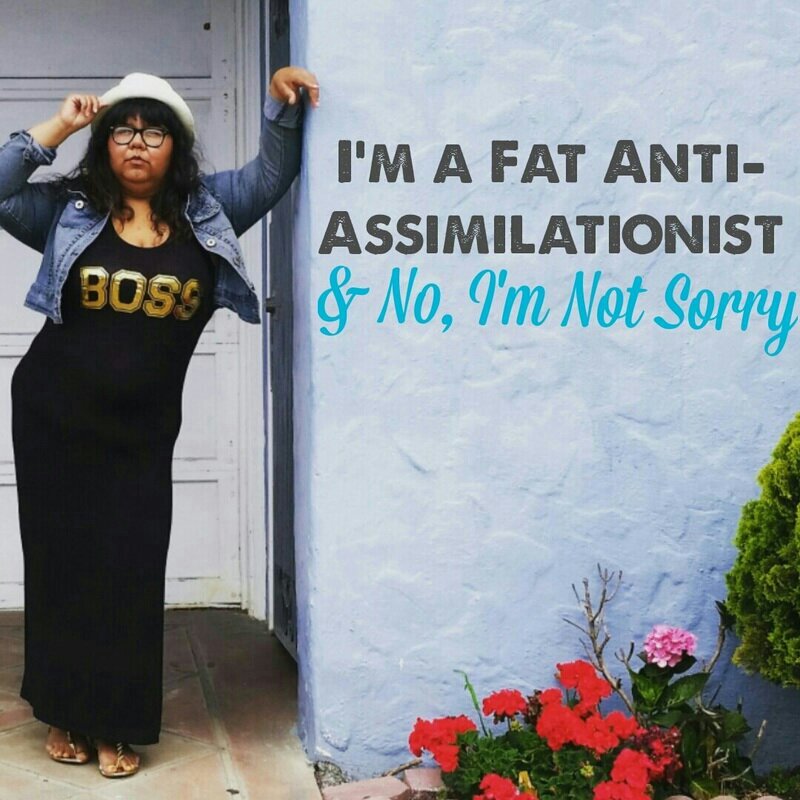


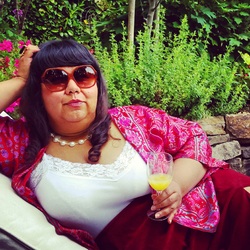
 RSS Feed
RSS Feed